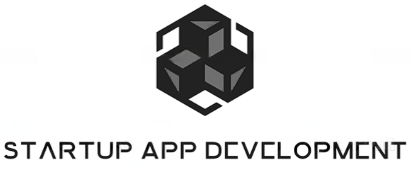Starting a new business venture is an exciting but challenging process. One critical step often overlooked by startups is initial testing. This process can save time, money, and effort in the long run, ensuring your product or service meets market needs. In this blog, we explore why initial testing is crucial and how it can significantly impact your startup’s success.
What is Initial Testing?
Initial testing is the process of evaluating your product or service in its early stages. This includes validating concepts, gathering feedback from potential users, and making necessary adjustments before a full market launch. It’s essential to test your most critical hypotheses, gauging whether your idea has the potential to satisfy market needs and provide value to customers. According to Strategyzer, focusing on the key hypotheses can help startups systematically navigate through these uncertain early stages.
Going beyond just prototypes, initial testing often requires employing methodologies like the Build, Measure, Learn cycle. This approach designs experiments to validate core assumptions about desirability, feasibility, and viability. By understanding these facets early, startups are better positioned to create viable business models and scalable products.
Understanding that initial testing is not a one-size-fits-all approach is critical, as each startup will have unique needs. Tailoring testing strategies to fit specific business goals can foster innovation and refine the product based on actual user feedback, ultimately leading to a more profound market alignment and greater chance of success upon launch.
Importance of Identifying Flaws Early
Early testing helps uncover design or functionality issues that could become costly problems later. By identifying and addressing these flaws early, startups can avoid expensive reworks and improve overall product quality.
Addressing potential flaws before they escalate is akin to nipping problems in the bud, thereby saving substantial time and resources. This proactive approach is crucial for any startup looking to enhance efficiency and maintain a competitive edge, safeguarding against the risks associated with untested product launches.
Understanding Customer Needs
Initial testing provides valuable insights into customer preferences and requirements, enabling startups to tailor their product to better meet market demands. This customer-centric approach fosters stronger market alignment.
Drawing from real-world feedback ensures that your product remains user-focused and adaptable to changing needs. Continuous iteration based on testing results encourages a product evolution driven by actual user scenarios, enhancing its relevancy and value proposition.
Streamlining Product Development
Testing early on allows for a more efficient development process. Feedback gathered during testing can guide development priorities and reduce the time and resources needed to pivot or make changes post-launch.
Moreover, early insights can help prioritize features that are most crucial to users, avoiding unnecessary additions that bloat development time and budget. This alignment ensures a product that is both lean and powerful, tailored to its user base.
Enhancing Investor Confidence
Evidence of thorough initial testing can boost investor confidence. It demonstrates a commitment to quality and due diligence, making it easier to secure funding and support from stakeholders.
Investors are more inclined to back a startup that has showcased its ability to critically evaluate and iterate on its idea. This validation reinforces your startup’s credibility, positioning it as a thoughtful and strategic venture worth their investment.
Wrapping Up: The Vital Role of Initial Testing
In conclusion, initial testing is a pivotal step for startups aiming for success. It helps identify potential flaws, understand customer needs better, and streamline product development. By investing time and resources into initial testing, startups can improve their chances of launching a product that resonates with their target audience and achieves long-term sustainability. To embark on this journey, consider partnering with experts like Startup App Development to guide you through effective development strategies.


